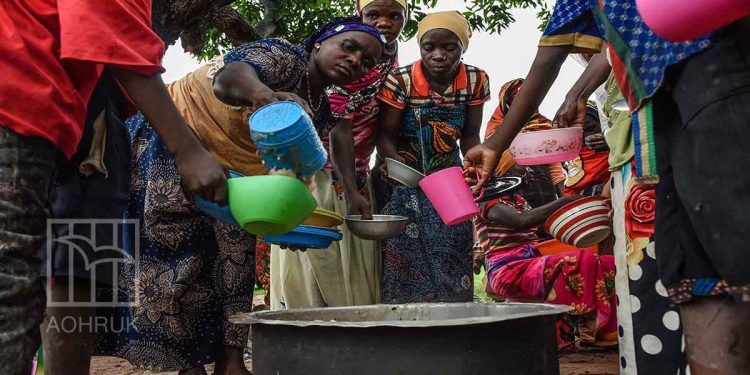Millions of people’s lives are in danger in Sudan as a result of a humanitarian crisis brought on by a protracted, brutal conflict and the total breakdown of essential services and infrastructure.
In this context, Tom Fletcher, the Under-Secretary-General for Humanitarian Affairs, issued a warning about the famine threat that millions of people in Sudan face as a result of the continuous fighting between the army and the Rapid Support Forces.
In an official statement, he emphasised that “famine is spreading in Sudan, the conflict is escalating, and the lives of millions are at risk,” and he expressed regret for the devastating findings of the Integrated Food Security Phase Classification’s Famine Review Committee report.
According to the committee’s report, famine has spread to five regions of Sudan and is predicted to spread to five more by May 2025, affecting approximately 24.6 million people, or nearly half of the population, who are food insecure.
Along with other regions in the Nuba Mountains, the most affected areas are the camps for the displaced in North Darfur, including Abu Shouk and Al Salam camps and Zamzam camp.
The report states that the bloody conflict between the Sudanese army and the Rapid Support Forces, which began in April 2023, is one of the factors contributing to the famine.
The most notable of these are the following: the economy and basic services collapsed, causing agricultural production to be paralysed and supply chains to be disrupted; the ongoing violence and aid disruption weakened humanitarian access, further complicating the food situation; and the unprecedented mass displacement that drove millions from their homes.
According to the International Committee, Sudan’s humanitarian crisis is one of the “worst hunger crises in modern times.” Human rights violations cannot be separated from it because the warring parties prevent humanitarian aid from reaching the population, depriving them of their right to relief.
More than 20,000 people have been killed, 14 million have been displaced or are refugees, and millions more are at risk of starvation as a result of the crisis, which has impacted 13 of the 18 states. The international community must step in to end the conflict, clear humanitarian routes, ensure aid reaches the most impacted areas, hold those responsible for impeding relief efforts and citizens’ access to food accountable, and seek long-term solutions that restore the Sudanese people’s fundamental rights to life and dignity.


























